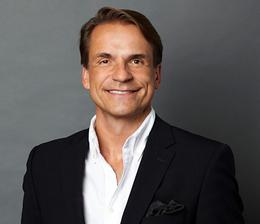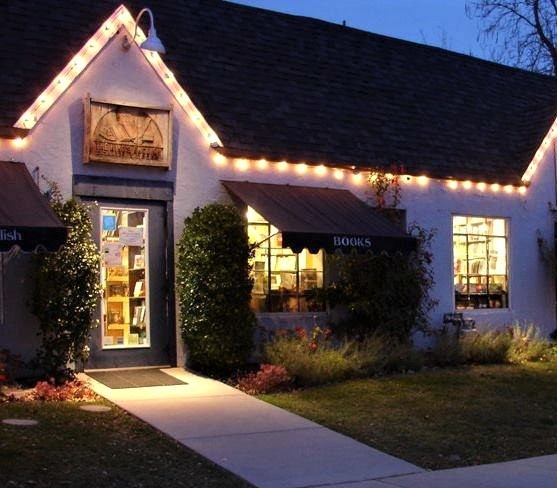 |
| Markus Dohle |
We're still digesting Friday's surprise resignation of the most powerful person in publishing, Markus Dohle.
Many media accounts of the change focus on the failed attempt for Penguin Random House to buy Simon & Schuster, a two-year process that incurred a $200 million termination payment to S&S's owner, Paramount Global, major legal fees, and ill will among many authors, agents, competitors and booksellers.
As the Financial Times put it: "Dohle was seen by Bertelsmann as the architect of the tilt at Simon & Schuster, as well as the manager responsible for its execution. Within PRH, while the failure was seen as a trigger for Dohle's departure, one insider said that after 15 years a change of leadership was overdue."
On the other hand, the Associated Press quoted a Bertelsmann spokesperson as saying that Dohle's "ill-fated push to acquire Simon & Schuster was not seen as a 'mistake' by the company and did not lead to pressure for him to resign as CEO."
But Handelsblatt, the German business newspaper, said that Dohle "had to have understood the collapsed deal as a personal defeat." The newspaper added that at Bertelsmann, Dohle was considered a possible successor to Bertelsmann CEO Thomas Rabe. "For Bertelsmann, his departure is a great loss."
Unfortunately for PRH, the trial included some embarrassing moments. The Justice Department quoted internal communications from PRH that seemed to contradict several stated reasons for the purchase--creating a counterbalance to Amazon's dominant position as a retailer and creating synergies and efficiencies. In addition, Dohle argued that he would allow PRH and S&S imprints to compete against one another for authors but admitted he could only promise this, not make it legally binding. He also maintained that publishing success is determined more by "instinct and random luck," not so much a company's size. His estimates of PRH's trade market share in the U.S. at about 20% and falling were considered by many to be inaccurate.
Still, during his 15 years as head of PRH, Dohle accomplished many things:
- He oversaw the rather smooth merger of Penguin and Random House into the world's largest trade publisher.
- He expanded PRH's operations, here and abroad, both by organic growth and through acquisitions, perhaps most strikingly in the Spanish-speaking world.
- In the past decade, he invested some $250 million in PRH's U.S. warehouse and distribution system, making it state of the art. Many other publishers thought printed books might go the way of linotype, with some even outsourcing fulfillment and distribution.
- In a related move, PRH Publisher Services has continued to expand and become one of the largest distributors in the country.
- He shepherded PRH through the worst of the pandemic, expanding sales to record levels.
- Ironically, under his leadership, Random House was the only major publisher that avoided being sued by the Justice Department in 2012 over e-book pricing collusion.
He has also been one of the most optimistic voices in the book world, a sincere, boyish kind of cheerleader for books, authors, the industry, and issues that concern anyone who values books and culture. He has been enthusiastic about PRH's authors and projects. He liked to say the publishing is culture and commerce--"in that order."
We were particularly impressed by his dedication to free speech. He is executive v-p of PEN America, with whom earlier this year he set up the Dohle Book Defense Fund to fight book bannings, to which he committed $500,000 over five years.
The Future
 |
| Nihar Malaviya |
Nihar Malaviya, currently president and chief operating officer of PRH U.S., becomes interim CEO of PRH on January 1. Bertelsmann has acknowledged that he is in the running to be appointed to the position permanently. A longtime PRH employee, he has been in charge of a range of operations, including technology and data, the supply chain, and through PRH Publisher Services, client services--and has worked closely with Dohle for 15 years. In a letter to staff quoted by the Wall Street Journal and the AP, he wrote, "As a young boy growing up in India, I regularly walked 45 minutes to our local library and read each and every book in the children's section.... I've partnered with many of you across functions and various countries, and I've experienced firsthand the abundance of talent that we have in our community. It is an incredible honor for me to lead the premier publishing company in the world, and I look forward to working with even more of you to build on the energy and dynamic culture we have collectively created."
The Financial Times noted that Madeline McIntosh, CEO of PRH U.S., "is also tipped to be among the other internal candidates."
The doomed PRH/S&S deal hasn't been the only merger and acquisition problem for Bertelsmann lately. In France, after a merger of Bertelsmann's M6 unit with TF1 collapsed for anticompetition reasons, Bertelsmann put M6 on the block until French authorities stressed that for licensing reasons, the sale had to be completed quickly, leading Bertelsmann to withdraw the offer. This fall Bertelsmann's call center business Majorel was unable to buy competitor Sitel.
Despite the failed S&S deal, Bertelsmann will continue to expand. CEO Rabe told Reuters that in the U.S., the company will focus on smaller and mid-sized companies. "We will invest several hundred million euros in the acquisition of book publishers worldwide by 2025 as part of our Boost strategy." The U.S. continues to be important to Bertelsmann: "We are by far the market leader there. Every acquisition, small or large, is very synergistic--on the cost and revenue side."
Of course, there's speculation about who might now bid for S&S, which Paramount Global still wants to spin off. Hachette and HarperCollins have long expressed interest, but the Justice Department might have anticompetitive objections to those combinations, too. So that could spark interest by a company whose main business isn't in the book world or a hedge fund or private equity fund. In the last few years, there have been precedents for the latter option: Elliott's purchase of Barnes & Noble and Waterstones, Jefferson River Capital's purchase of Follett, and several recent owners of Baker & Taylor.
As for Dohle's future, he and Bertelsmann said he will act as a consultant to the company where he has worked since 1994. He had been working under a contract that ends in December 2025. As he wrote to colleagues in Germany, as quoted by Buchreport, "We had a rather cool run in the last 15 years, together seizing many opportunities, publishing many of the best stories and overcoming many challenges and crises: from the financial crisis in 2008 to digital transformation and the biggest merger in the history of publishing--which now is reflected in our company's name here in Munich--to the first worldwide pandemic in a hundred years. And none of these events could keep us from publishing our stories and books with creativity and passion, 'one book at a time.'...
"Of course, I know well that this year was marked by macro-economic and geopolitical challenges and crises. And still, I remain optimistic about the future of the global book publishing as well as the role and position as Penguin Random House in our industry. My belief is based on data and facts! I am sure that you will shape the future of the book and reading for future generations. Publishing books is fundamentally an important societal task. Your daily work in our beloved book world is of central importance--and above and beyond the health of our publishing group!
"Today we should look back on all our accomplishments with pride and look forward with confidence and trust on what may come our way. I thank you all for your support and trust over all the years and decades." --John Mutter
 In Salt Lake City, Utah, the King's English Bookshop "brought in a lot more Christmas stuff than we've ever brought in before," reported co-owner Calvin Crosby. Over the past few weeks there's been increased foot traffic and a significant uptick in the use of online sales and contactless pick-up, which the store continues to offer. Crosby noted that during the warm months, contactless pick-up "goes fallow," before increasing as the holidays approach.
In Salt Lake City, Utah, the King's English Bookshop "brought in a lot more Christmas stuff than we've ever brought in before," reported co-owner Calvin Crosby. Over the past few weeks there's been increased foot traffic and a significant uptick in the use of online sales and contactless pick-up, which the store continues to offer. Crosby noted that during the warm months, contactless pick-up "goes fallow," before increasing as the holidays approach. Candice Anderson, co-owner of Tombolo Books in St. Petersburg, Fla., reported that the holiday shopping season is in full swing, with both year-round customers and snowbirds stopping by. Compared to the past few years, Anderson noted, there has been less early shopping, but the store wrapped its first Christmas gift on Halloween.
Candice Anderson, co-owner of Tombolo Books in St. Petersburg, Fla., reported that the holiday shopping season is in full swing, with both year-round customers and snowbirds stopping by. Compared to the past few years, Anderson noted, there has been less early shopping, but the store wrapped its first Christmas gift on Halloween. Robert Sindelar, managing partner at Third Place Books in Lake Forest Park, Seward Park and Ravenna, Wash., reported that the 2021 holiday season "set records" at all three of the store's locations, so it was not a huge surprise that things started a bit slower this November. There were some early shoppers who bought "stacks of books," but there were "just fewer of them" compared to last year. In the past couple of days, however, "it's finally feeling like things are kicking into gear."
Robert Sindelar, managing partner at Third Place Books in Lake Forest Park, Seward Park and Ravenna, Wash., reported that the 2021 holiday season "set records" at all three of the store's locations, so it was not a huge surprise that things started a bit slower this November. There were some early shoppers who bought "stacks of books," but there were "just fewer of them" compared to last year. In the past couple of days, however, "it's finally feeling like things are kicking into gear."




IPC.0204.S3.INDIEPRESSMONTHCONTEST.gif)



 Monarch Books & Gifts
Monarch Books & Gifts



 "
" Tutankhamun, King of Egypt: His Life and Afterlife
Tutankhamun, King of Egypt: His Life and Afterlife Chitra Banerjee Divakaruni explores the explosive effects of the Partition of India and its ramifications for one close-knit family of women in Independence, her stunning 13th novel for adults. Divakaruni (The Last Queen) focuses her story on the Hindu Ganguly family, who have long lived at peace in the quiet village of Ranipur with both Hindu and Muslim neighbors. But when the family--mother Bina, father Nabakumar and their three grown daughters--visit Calcutta in August 1946, their peaceful world is violently upended. Nabakumar, a doctor dedicated to serving indigent patients no matter their religion, is caught in the crossfire of the riots of Direct Action Day, and his death has immediate emotional and practical consequences for his family.
Chitra Banerjee Divakaruni explores the explosive effects of the Partition of India and its ramifications for one close-knit family of women in Independence, her stunning 13th novel for adults. Divakaruni (The Last Queen) focuses her story on the Hindu Ganguly family, who have long lived at peace in the quiet village of Ranipur with both Hindu and Muslim neighbors. But when the family--mother Bina, father Nabakumar and their three grown daughters--visit Calcutta in August 1946, their peaceful world is violently upended. Nabakumar, a doctor dedicated to serving indigent patients no matter their religion, is caught in the crossfire of the riots of Direct Action Day, and his death has immediate emotional and practical consequences for his family.